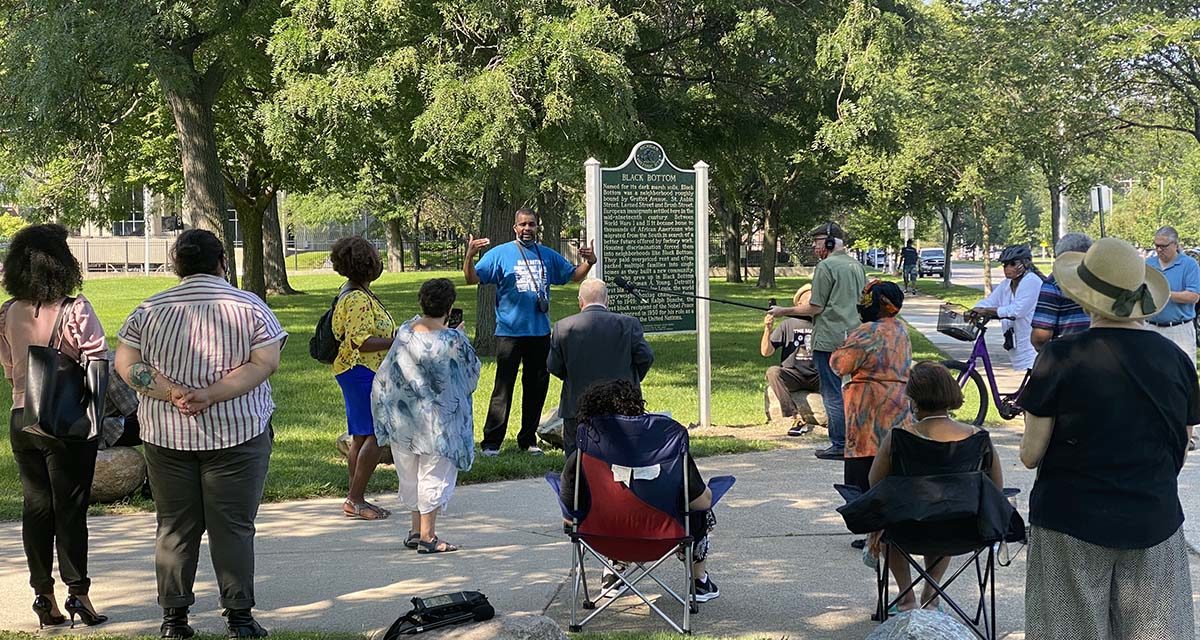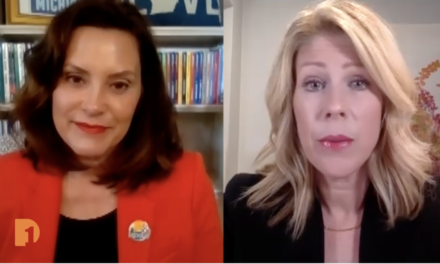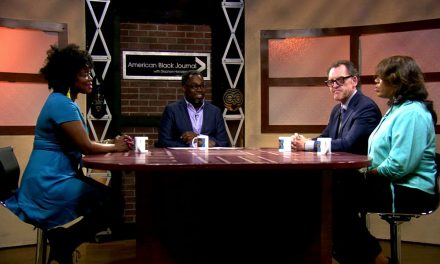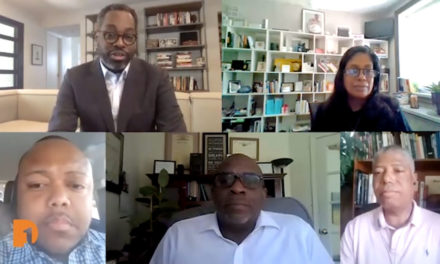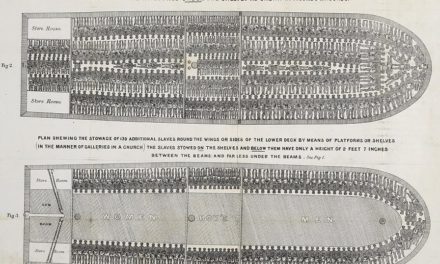The City of Detroit helped facilitate the destruction of Black Bottom, home to hundreds of Black businesses and thousands of residences, to create a path for the I-375 freeway during the 1950s and early 1960s. Here, historian Jamon Jordan commemorates the Black Bottom site where the state historical marker is placed near East Lafayette. (BridgeDetroit photo by Orlando Bailey)
By Olivia Lewis, BridgeDetroit
Should the members of Detroit’s reparations task force be Black? Should they be Detroiters?
These are questions included on a survey to help determine who would qualify for a seat on Detroit’s reparations task force.
City Council President Mary Sheffield and members of the original working group hosted the first Reparations Taskforce Community meeting on Thursday evening. The virtual event lasted just over an hour and is expected to be the first of many community-driven conversations. Participants, and now residents citywide, are tasked with filling out a survey to help the City Council determine which qualifications to set for taskforce members.
Related:
- American Black Journal, BridgeDetroit Host Virtual Town Hall on Reparations
- Sheffield talks reparations task force, urges community to weigh-in
- Overtaxed Detroiters expect to be repaid
- Mackinac panelists: Reparations are the path to economic prosperity
The survey can be found on the City of Detroit’s website until March 10. Sheffield said she hopes the process for determining eligibility to sit on the task force within two months.
Most City Council members or their staff were present for the meeting, as well as State Rep. and congressional candidate Sri Thanedar and Wayne County Deputy Chief of Staff Stephen Grady Muhammad.
Lauren Hood, a member of the workgroup, said the survey will be used to gauge a wide range of residents.
“We realize we are dumping a lot of information on people who may not have been thinking about this as long as some of us, so we recognize you may not be able to make an informed decision in real-time,” she said during the meeting.
Over 100 people joined the Zoom event. Many more tried to participate but were held in a virtual waiting room within the first 10 minutes of the meeting as hackers temporarily took over the meeting with illicit images and lewd audio. Members of the Council president’s team said they were contacting the cyber crimes unit of the Detroit Police Department to determine who was responsible.
Last November, Detroit voters supported the creation of a reparations task force to address past harm caused by City housing and economic development policies.
Most participants said they would prefer the task force be made up of members who are Black Detroiters due to their lived experience in the City. However, a few participants said they’d prefer a task force that included experts like Richard Rothstein and William Darity, or historians who may have not had a personal connection to Detroit, but have studied reparations and institutional racism within public policy.
“You want to consider folks who have a good understanding of the issue,” said Jacob Walker. “Folks who are willing to come to work, you want productive members. So I wouldn’t limit myself just based on Detroit. If they’re here to work, and they have the history and the knowledge and they want to contribute, I wouldn’t turn them away.”
Many felt strongly about an all-Detroiter task force, but there were variations in what determined someone to be a “Detroiter” among the crowd. Some suggested those who have lived in the city for at least 20 years, only homeowners, and those who attended Detroit public schools.
Read Full StorySubscribe to One Detroit’s YouTube Channel & Don’t miss One Detroit Mondays and Thursdays at 7:30 p.m. on Detroit Public TV, WTVS-Channel 56.
Catch the daily conversations on our website, Facebook, Twitter @DPTVOneDetroit, and Instagram @One.Detroit
View Past Episodes >
Watch One Detroit every Monday and Thursday at 7:30 p.m. ET on Detroit Public TV on Detroit Public TV, WTVS-Channel 56.

